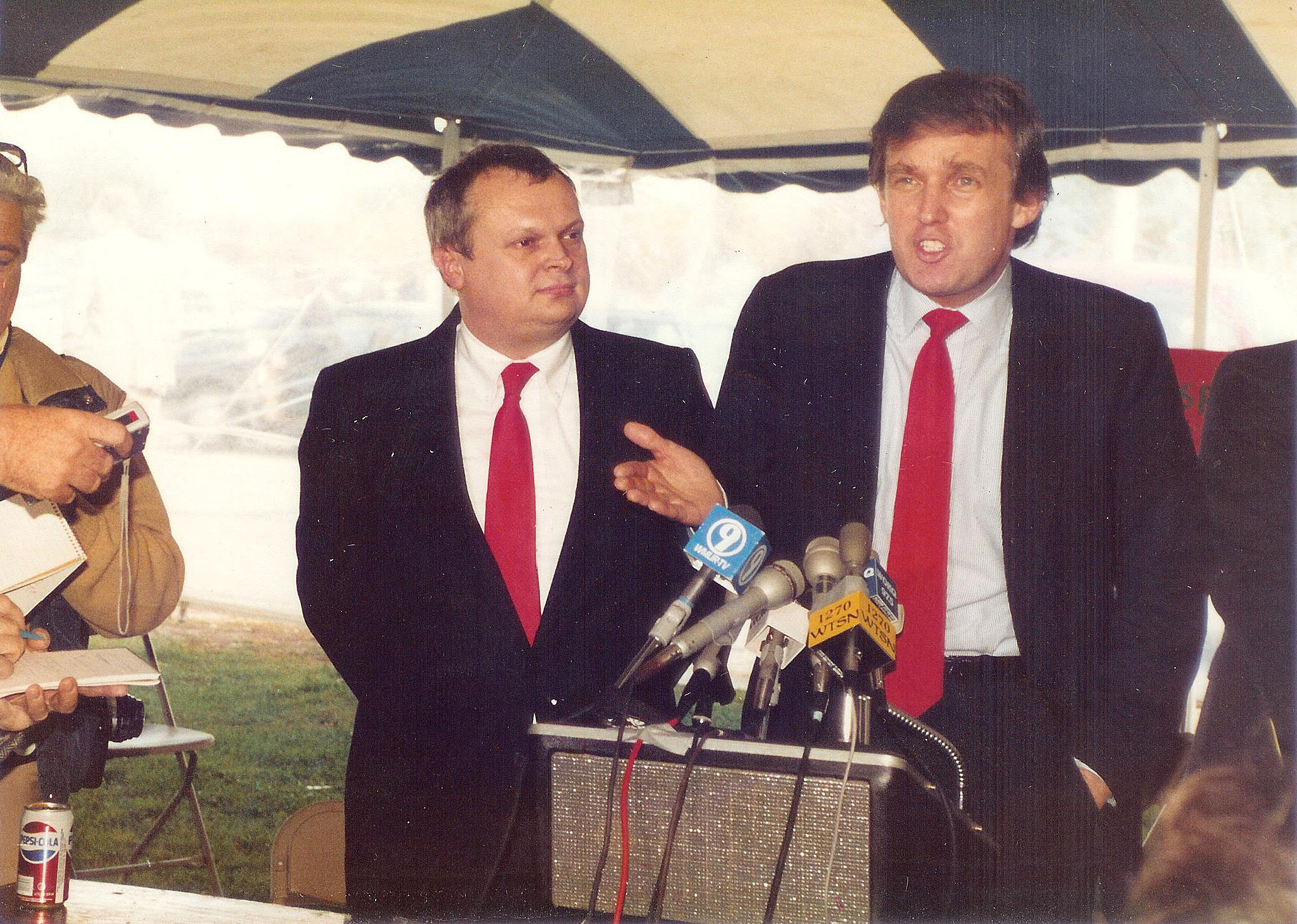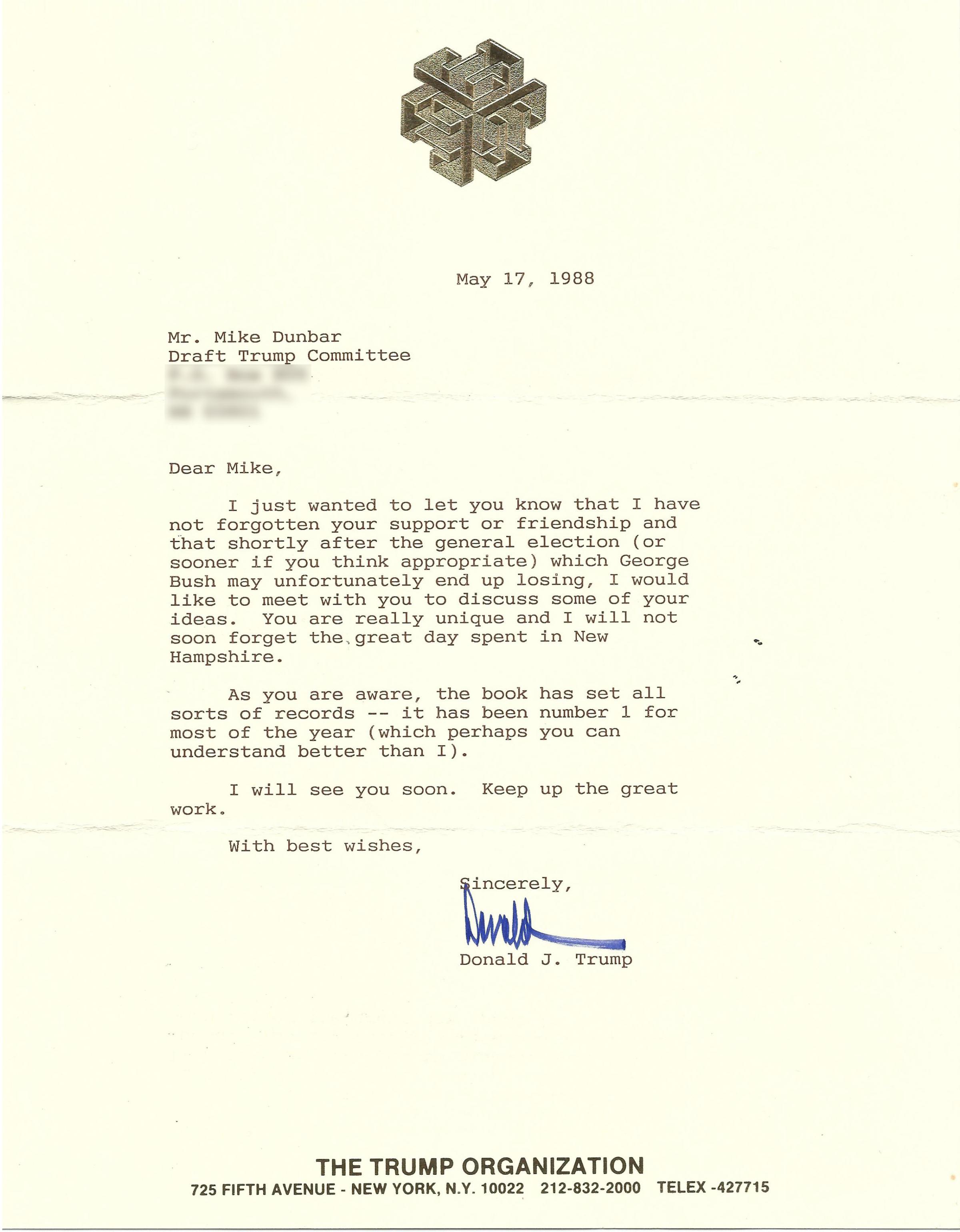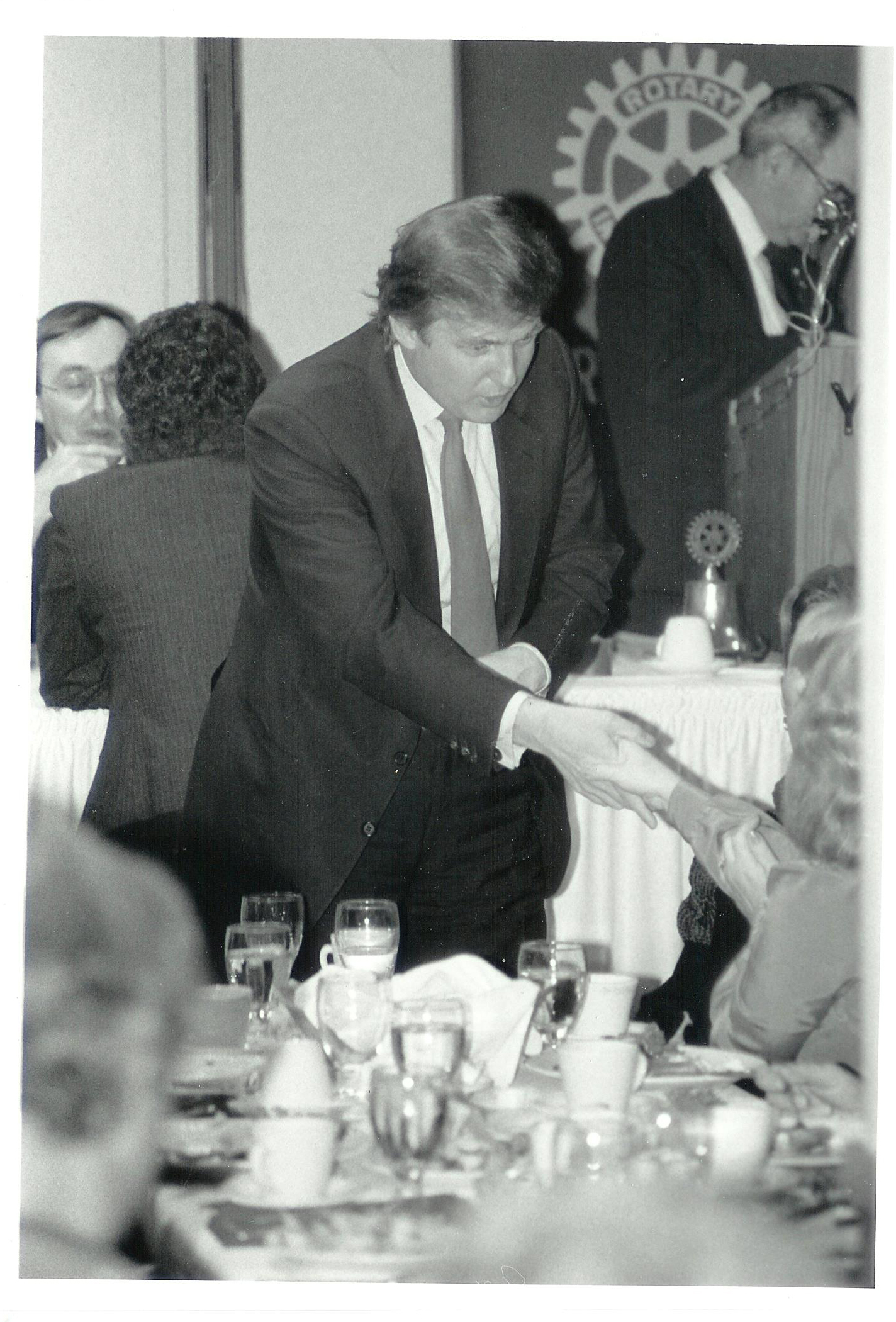
Decades before Donald Trump would rise to the Republican presidential nomination, a political activist from New Hampshire saw in him the makings of a commander-in-chief and “planted a seed.”
Mike Dunbar, now 69, launched a “Draft Trump” campaign in 1987, based largely on what he had read about Trump’s career in the Wall Street Journal. At the time, though Trump said he was not planning to run for office, he was making headlines for speaking out with his views about world events (and his then-forthcoming book, The Art of the Deal). Dunbar ventured to Trump Tower, sat opposite the real-estate mogul at a large stone desk— “the biggest piece of stone I think I’ve ever seen”—and arranged for Trump to speak to the Rotary Club in Portsmouth, N.H., on Oct. 22, 1987.
Nearly 30 years later, Trump is still the candidate Dunbar wants to elect president.
“I think the surprising thing about him is he hasn’t changed a lot. What I saw in him then was a brashness and a determination of purpose that was lacking in everyone else,” Dunbar told TIME in an interview. “He’s still the guy I met in 1987.”
The two kept up correspondence briefly after Trump’s visit to Portsmouth, as Trump wrote to convey his gratitude and his interest in discussing Dunbar’s campaign ideas.
“I really appreciate your friendship — You have created a very exciting part of my life — On to the future,” Trump inscribed in a hardcover copy of The Art of the Deal for Dunbar in December 1987.
Get your history fix in one place: sign up for the weekly TIME History newsletter
“I just wanted to let you know that I have not forgotten your support or friendship and that shortly after the general election (or sooner if you think appropriate) which George Bush may unfortunately end up losing, I would like to meet with you to discuss some of your ideas,” he wrote in a typed letter on Trump stationary dated May 17, 1988, before noting that his book had “set all sorts of records.”

George H.W. Bush did not end up losing the 1988 election, but Trump continued to stay in touch with Dunbar, donating to his 1989 campaign for the Portsmouth City Council and writing to congratulate him when he won.
In the intervening years, Dunbar left politics to raise his son and left the Republican Party to become an undeclared voter, concluding that the GOP was dominated by elite politicians who were “so out of touch with ordinary people.” Trump has made that sentiment a talking point throughout his presidential bid, campaigning as the anti-establishment candidate running against a “rigged” system.
Dunbar hasn’t attended any of Trump’s New Hampshire rallies this year, but he voted for him in the state’s primary and plans to do so again in November.
“I’ll probably put a Trump sign out on my lawn,” he said, adding that he will donate to Trump’s campaign. “Beyond that, I try not to interfere.”
Considering all the campaign has now become, Dunbar expressed some awe that Trump’s presidential ambitions can, in a way, be traced directly back to him.

“Sometimes I think, how did I do this? I planted a seed that has taken root and is now growing into a tree,” he said. “I don’t know what to make of it. Is it fate? Why me?”
Dunbar cites Trump’s negotiating abilities, his understanding of the country’s problems and his refusal to be politically correct as reasons he still supports him.
“My faith is strengthened by the fact that he hasn’t changed,” Dunbar said. “If he is elected, and he does the things he says he’s going to do, it’ll be really good for the country, and I’ll be glad I did it.”
More Must-Reads from TIME
- Donald Trump Is TIME's 2024 Person of the Year
- Why We Chose Trump as Person of the Year
- Is Intermittent Fasting Good or Bad for You?
- The 100 Must-Read Books of 2024
- The 20 Best Christmas TV Episodes
- Column: If Optimism Feels Ridiculous Now, Try Hope
- The Future of Climate Action Is Trade Policy
- Merle Bombardieri Is Helping People Make the Baby Decision
Write to Katie Reilly at Katie.Reilly@time.com